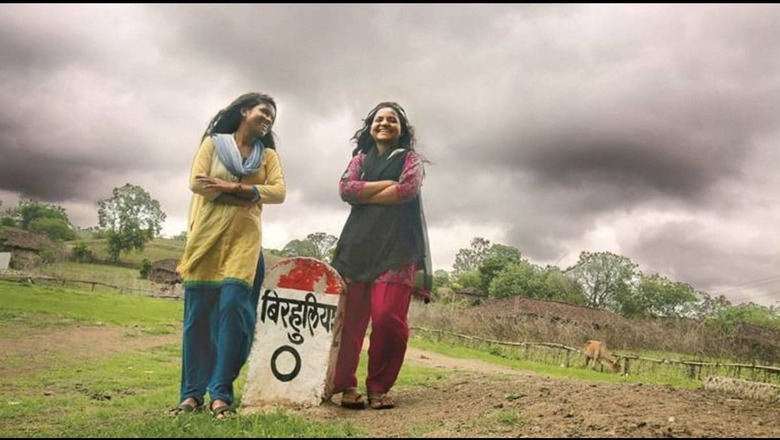
views
Menstrual health management is an essential aspect of promoting gender equality and ensuring the well-being of girls in schools. Access to safe and inclusive toilets plays a crucial role in managing menstrual hygiene effectively. Unfortunately, many schools worldwide lack adequate facilities, leading to numerous challenges for menstruating students. According to a report by UNICEF, only 57.6% of schools in rural areas and 78.5% of schools in urban areas have separate functional toilets for girls. Moreover, many existing toilets lack proper water supply, disposal facilities, and hygiene maintenance, making them unfit for use during menstruation.
In this article, we will delve into the importance of safe and inclusive toilets in schools, explore the impact of menstrual health management on girls’ education, and discuss the transformative efforts of Mission Swachhta aur Paani, a Harpic India & News18 initiative, in creating safe and inclusive school environments through toilet inclusivity.
Importance of Safe and Inclusive Toilets:
Access to clean and safe toilets is crucial for ensuring proper menstrual hygiene management among girls in schools. Unfortunately, many schools in India lack adequate toilet facilities, especially for girls, which hinders their ability to manage their menstrual hygiene effectively. This leads to several challenges, including increased absenteeism, reduced concentration, and compromised dignity and privacy.
Safe and inclusive toilets are vital for addressing the unique needs of menstruating students. They provide a private and hygienic space for girls to change menstrual products, clean themselves, and manage their menstrual hygiene discreetly. These toilets should be equipped with proper sanitation facilities, such as clean water, handwashing stations, waste disposal units, and menstrual hygiene products.
By having safe and inclusive toilets in schools, we can eliminate barriers that hinder girls’ attendance, participation, and academic performance. It promotes their physical and psychological well-being, reduces the risk of reproductive tract infections, and improves overall menstrual health. Additionally, providing adequate facilities demonstrates a commitment to gender equality and creates an inclusive environment where all students feel respected and supported.
Impact on Girls’ Education:
Insufficient menstrual health management facilities in schools can have detrimental effects on girls’ education. Without access to safe and inclusive toilets, girls often face challenges that disrupt their learning and academic progress. Fear of stigma and embarrassment may cause them to skip school during menstruation days, leading to frequent absences and falling behind in their studies. This perpetuates a cycle of unequal educational opportunities and limits girls’ potential for personal and professional growth.
Furthermore, the lack of proper facilities exposes girls to unhygienic conditions, increasing their vulnerability to infections and health complications. The discomfort and anxiety associated with inadequate toilets contribute to stress and anxiety among menstruating students, affecting their overall well-being and confidence.
Mission Swachhta aur Paani: Ensuring Toilet Inclusivity:
Recognizing these challenges, Mission Swachhta aur Paani, a collaborative initiative by Harpic India and News18, focuses on improving menstrual hygiene management in schools by ensuring access to clean and safe toilets. The initiative aims to raise awareness about constructing and upgrading toilets, particularly for girls, with proper water supply, disposal facilities, and hygiene maintenance. It also emphasizes the importance of hygiene education, including menstrual health education, to promote awareness and behaviour change among students.
By partnering with government bodies, NGOs, Stakeholders and others, Mission Swachhta aur Paani works towards raising awareness & help providing access to clean and safe toilets for all students with a focus on:
Infrastructure Development: The initiative in partnership with various stakeholders supports schools in building and renovating toilets that are equipped with proper sanitation facilities, including separate spaces for boys and girls, handwashing stations, and waste disposal units. These infrastructure improvements create an enabling environment for menstrual health management and overall hygiene.
Hygiene Education and Awareness: The campaign helps conduct comprehensive hygiene education programs that raise awareness about menstrual health management, debunk myths and taboos, and promote positive attitudes towards periods. Students are educated about proper menstrual hygiene practices, the importance of handwashing, and the significance of maintaining clean toilets for their well-being.
Capacity Building and Support: The initiative in partnership with various NGOs and changemakers helps in providing training to teachers and school staff on menstrual health management, hygiene practices, and the maintenance of toilets. This capacity-building ensures that schools can sustain the hygiene practices and uphold the standards of safe and inclusive toilet facilities.
The impact of Mission Swachhta aur Paani is evident in the positive transformation it brings to schools and the lives of students. By promoting toilet inclusivity and menstrual health management, the initiative empowers girls to attend school regularly, participate fully in their education, and break free from the barriers that hinder their progress.
Safe and inclusive toilets in schools are crucial for managing menstrual hygiene effectively, promoting gender equality, and ensuring girls’ education. Mission Swachhta aur Paani, a Harpic India & News18 initiative, plays a pivotal role in creating an impact by driving toilet inclusivity and access to clean and safe toilets in schools across the country. By addressing the menstrual hygiene needs of girls, the campaign aims to promote gender equality, improve educational outcomes, and safeguard the health and well-being of young girls across the country. Through infrastructure development, hygiene education, and capacity building, the initiative creates safe and inclusive environments that empower girls to embrace their education and future with confidence. Together, we can create a society where every girl has the opportunity to thrive and fulfil her potential.
Join Mission Swachhta aur Paani, a Harpic India & News18 initiative, to empower India through better menstrual health and discover how small changes in menstrual hygiene practices can make a big difference.
Visit https://www.news18.com/missionswachhtapaani/ to know more.




















Comments
0 comment